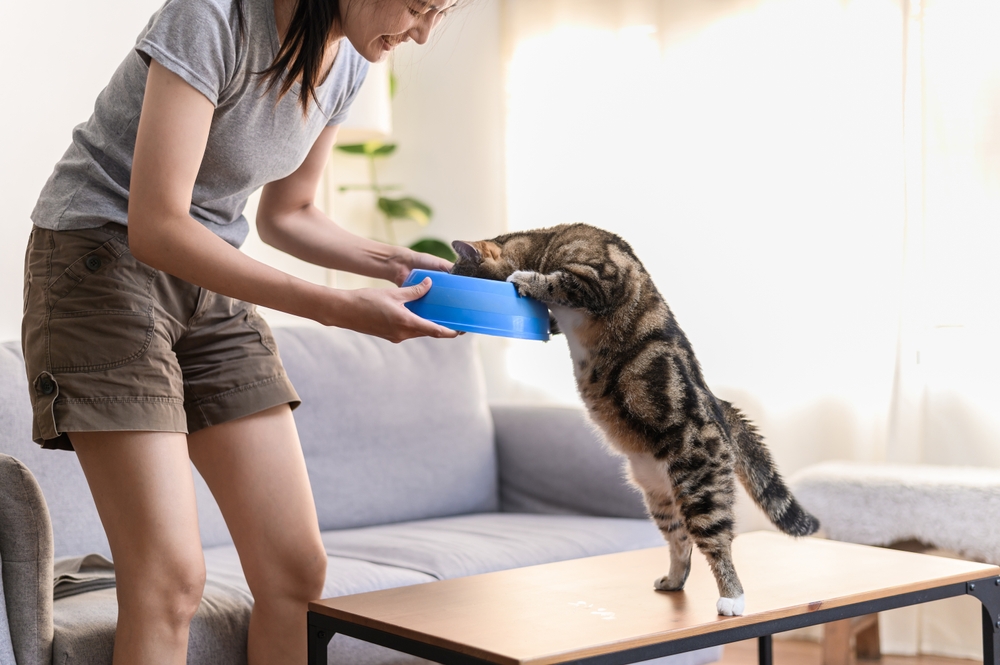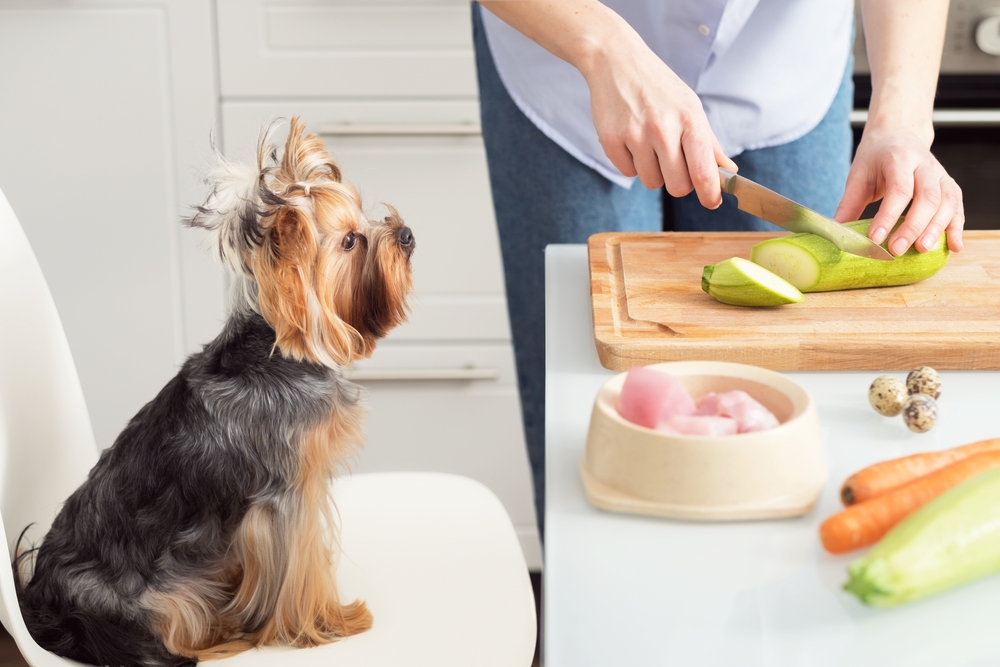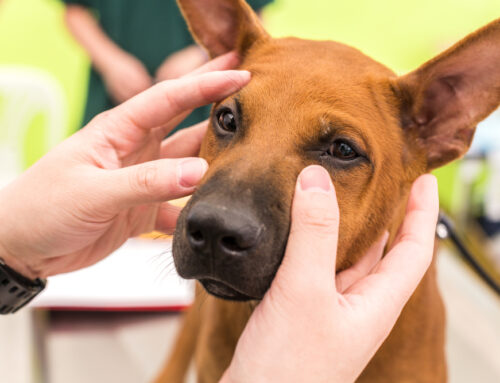Homemade pet food has gained popularity among pet owners who wish to provide their furry companions with healthier ingredients and a more natural diet. While the intention is commendable, several issues can arise when opting to make your pet’s food. Our Central Kentucky Veterinary Center team delves into the common problems and potential risks of feeding your furry friend a homemade diet.
Homemade pet diets often lack nutritional balance
One of the most significant concerns with homemade pet food is ensuring that the diet is balanced. Pets have specific dietary requirements that can be challenging to meet without proper nutritional knowledge and guidance. Some common nutrient deficiencies in homemade pet food include:
- Amino acids — Dogs and cats need specific amino acids, such as taurine, histidine, isoleucine, leucine, lysine, methionine, phenylalanine, and threonine, which may not be easily obtained in a homemade diet.
- Vitamins and minerals — Pets require various vitamins and minerals in precise amounts. For instance, calcium and phosphorus must be balanced to support healthy bone development.
- Fatty acids — Essential fatty acids, such as omega-3 and omega-6, are crucial for skin health, coat quality, and overall wellness. Homemade diets often lack these fatty acids in the correct proportions.
Homemade pet diets pose a high contamination risk
Homemade pet food can be contaminated if not prepared and stored correctly. These risks include:
- Bacterial contamination — Raw meat diets are particularly susceptible to bacteria, including Salmonella and E. coli, which can pose health risks to both pets and their owners without proper handling and storage.
- Cross-contamination — Handling raw meat and other ingredients can lead to cross-contamination with harmful pathogens.
- Spoilage — Without proper preservation methods, homemade pet food can spoil quickly, leading to foodborne illnesses.
Making homemade pet food requires time and effort
Preparing homemade pet food is more challenging than you may think. Not only does it require time to research and become knowledgeable about pet nutrition, but making your pet’s food also requires significant time to make. Some of these issues include:
- Researching recipes — Finding and verifying nutritionally balanced recipes can be challenging and time-consuming, mainly because pet nutrition misinformation is often spread online.
- Shopping and preparation — Purchasing high-quality ingredients and preparing meals from scratch takes considerable effort, which can be difficult in today’s busy world.
- Making adjustments — Pets’ nutritional needs can change because of age, weight, health conditions, and activity levels, requiring continuous adjustments to optimize your pet’s diet, thereby causing you to start researching and preparing many times over.
Homemade pet food is often more expensive than commercial foods
Contrary to popular belief, homemade pet food can be more expensive than commercial pet food, especially when sourcing high-quality ingredients. The costs of meats, vegetables, supplements, and storage containers can add up quickly, making homemade diets an investment in time, effort, and money.
Homemade pet diet promoters lack expertise
Many pet owners rely on online resources or anecdotal advice when formulating homemade pet diets. However, these sources may not always provide accurate or comprehensive nutritional information. Consulting with our Central Kentucky Veterinary Center veterinarian is crucial before switching your furry friend to a homemade diet.
Homemade pet diets have inconsistent quality and variety
Commercial pet foods undergo rigorous testing and quality control to ensure consistency and nutritional adequacy. In contrast, homemade diets can vary in quality and nutritional content based on the ingredients used and the owner’s preparation methods.
Homemade pet food may trigger allergies and sensitivities
Homemade diets can inadvertently introduce allergens or ingredients to which a pet is sensitive, including carbohydrates, proteins, or other additives. Identifying and eliminating these allergens can be more challenging without the standardized ingredient lists provided by the food labels on commercial pet foods.
Homemade pet diets increase the food toxicity risk

Some homemade pet food recipes may contain ingredients that could be harmful to pets. Potentially toxic ingredients, such as onions and garlic, grapes, xylitol—a sugar substitute used in some peanut butters—avocado, and certain nuts, are poisonous to pets.
While feeding your pet a homemade diet may stem from a desire to provide the best for your furry pal, researching and preparing them pose substantial challenges. Ensuring nutritional balance, avoiding contamination, managing your time and expenses, and seeking expert guidance are crucial if you plan to prepare homemade pet food, so schedule a nutrition consultation with our Central Kentucky Veterinary Center team so we can help you avoid the potential risks and help your pet stay healthy.







Leave A Comment